Our Barrel-Aged Beer Goes Nationwide
Early in the 2010s, Jeff White filled 10 bourbon barrels with a no-name Russian imperial stout. It was a “pilot” beer, simply an experiment.
But standing over those casks, spellbound by the wafting aroma — notes of chocolate, espresso, vanilla — Jeff glimpsed the future.
The passage of time and the influence of barrels would yield something altogether new.
“I remember telling my boss, ‘This is an award-winning beer,’” says Jeff, who’s now solely dedicated to barrel-aging at Sierra Nevada.
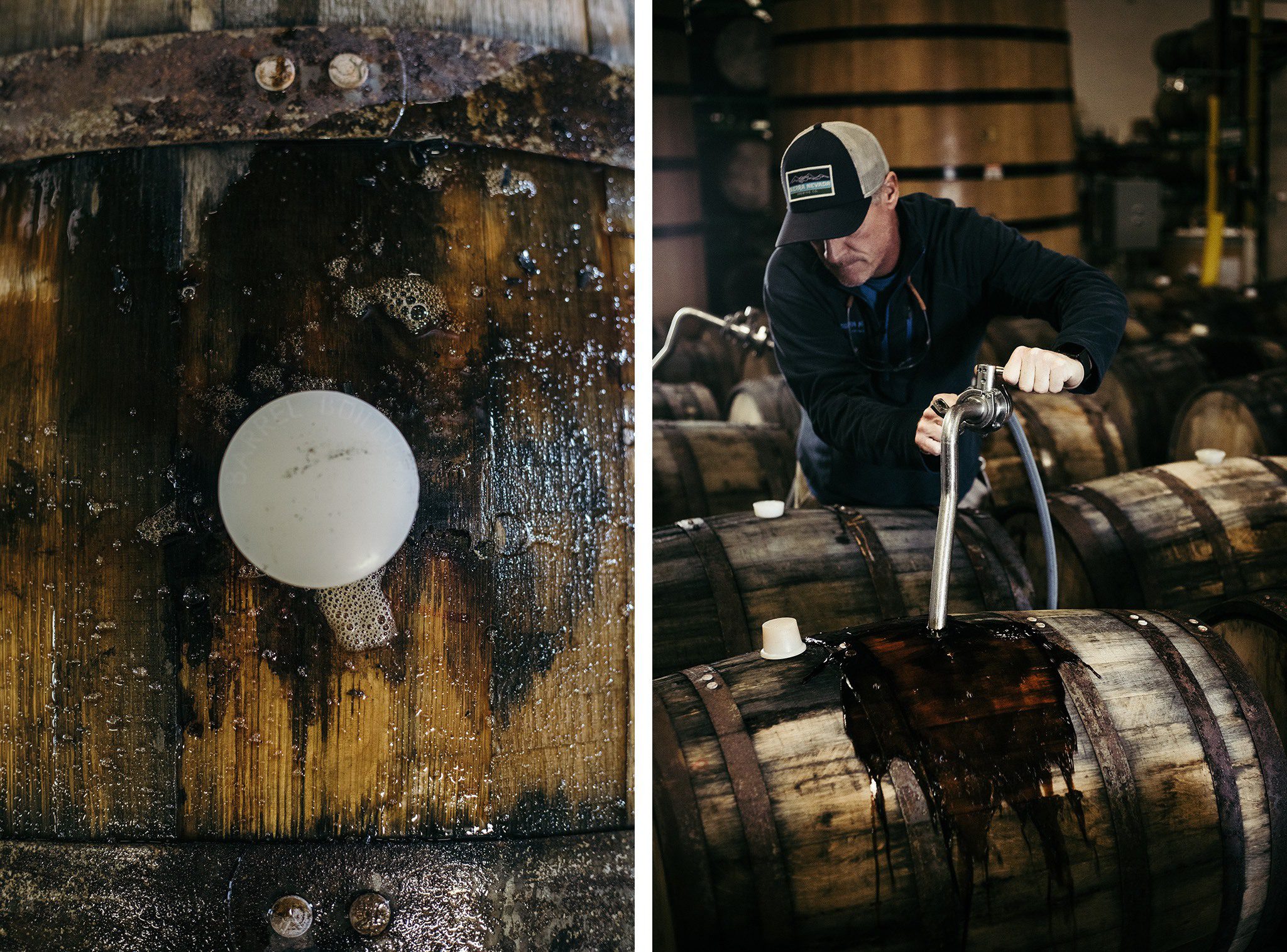
We submitted that very beer, aged for 10 months, to the 2013 Great American Beer Festival. We won a silver medal. The base beer had found a name, Narwhal Imperial Stout, and we embraced our beloved malt monster.
In the years that followed, we would release the occasional batch of Barrel-Aged Narwhal — super low volume, really hard to find, and daunting 750mL bottles. But now it’s in 4-packs of 16-ounce cans, and we’ll ship it right to your door if you’re in an approved state*. (While it is in some stores, the search might be like a needle in a haystack.)
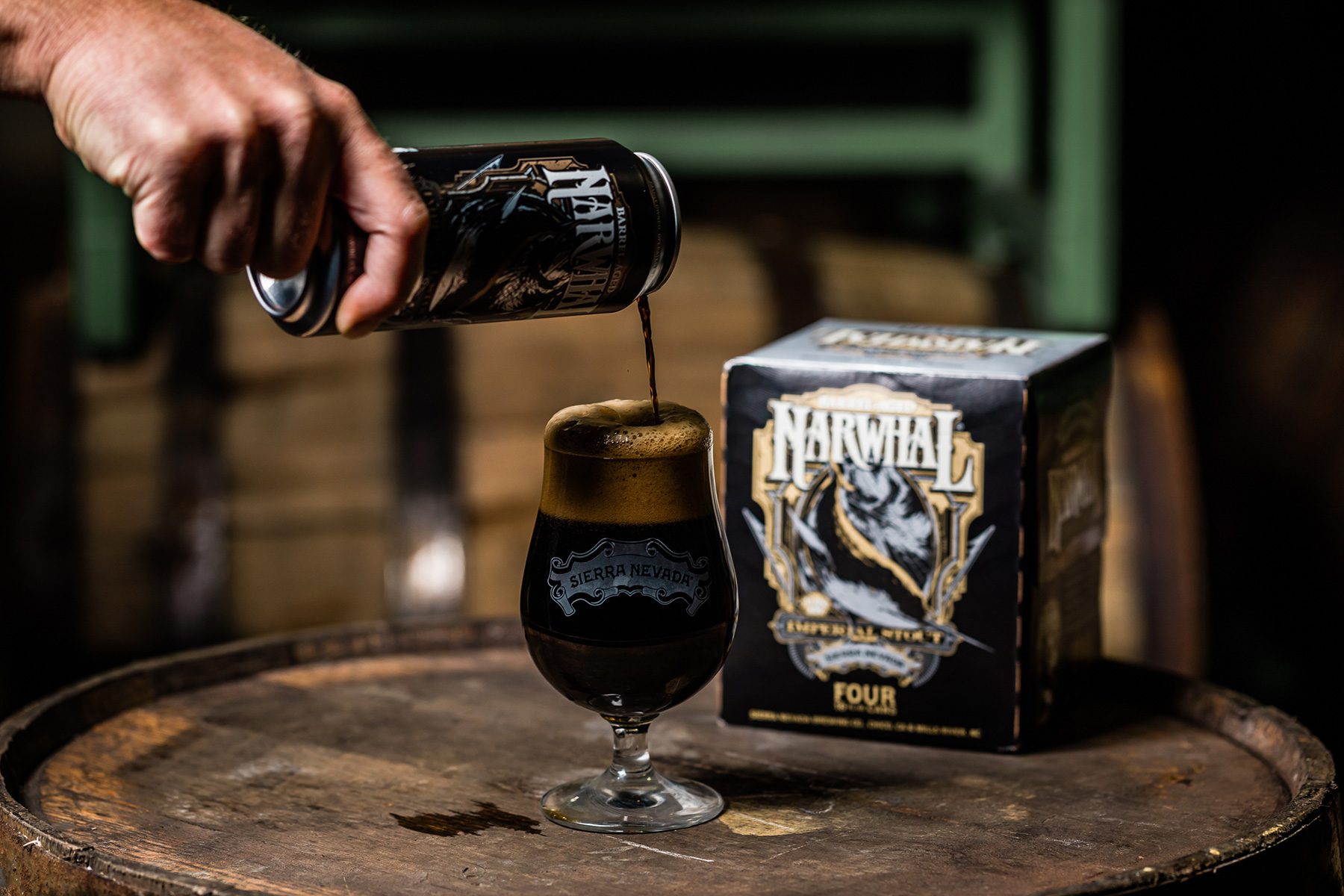
“We’ve been hoping and pushing for [this] for a long time,” says Nick Ison, Jeff’s counterpart in our barrel-aging program. “Really getting behind a single brand and getting that out in a more approachable package.”
Twenty years ago, we couldn’t imagine a barrel-aged release of this scale. Mostly because we only owned two barrels.
The Origins Of Our Barrel-Aging Program
One of Nick’s teammates, working in our cellar department, had a friendship with a distillery in the San Francisco Bay Area. He sourced a pair of spent bourbon barrels and made the drive to retrieve them.
These days we’re stocked with proper racks for storage and transportation. But back then?
“We just had these two barrels strapped to a pallet and had no idea what we were doing,” Nick says.
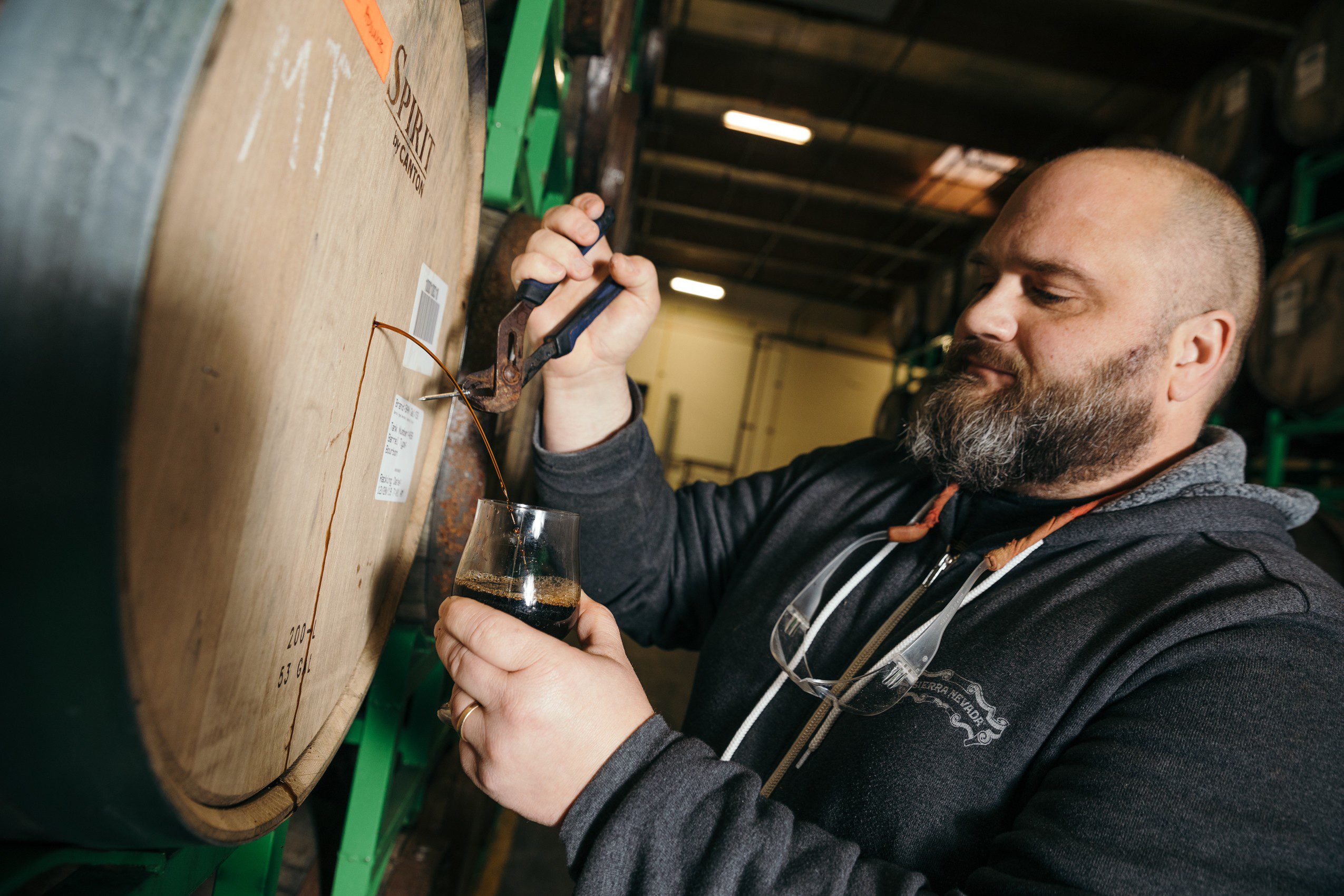
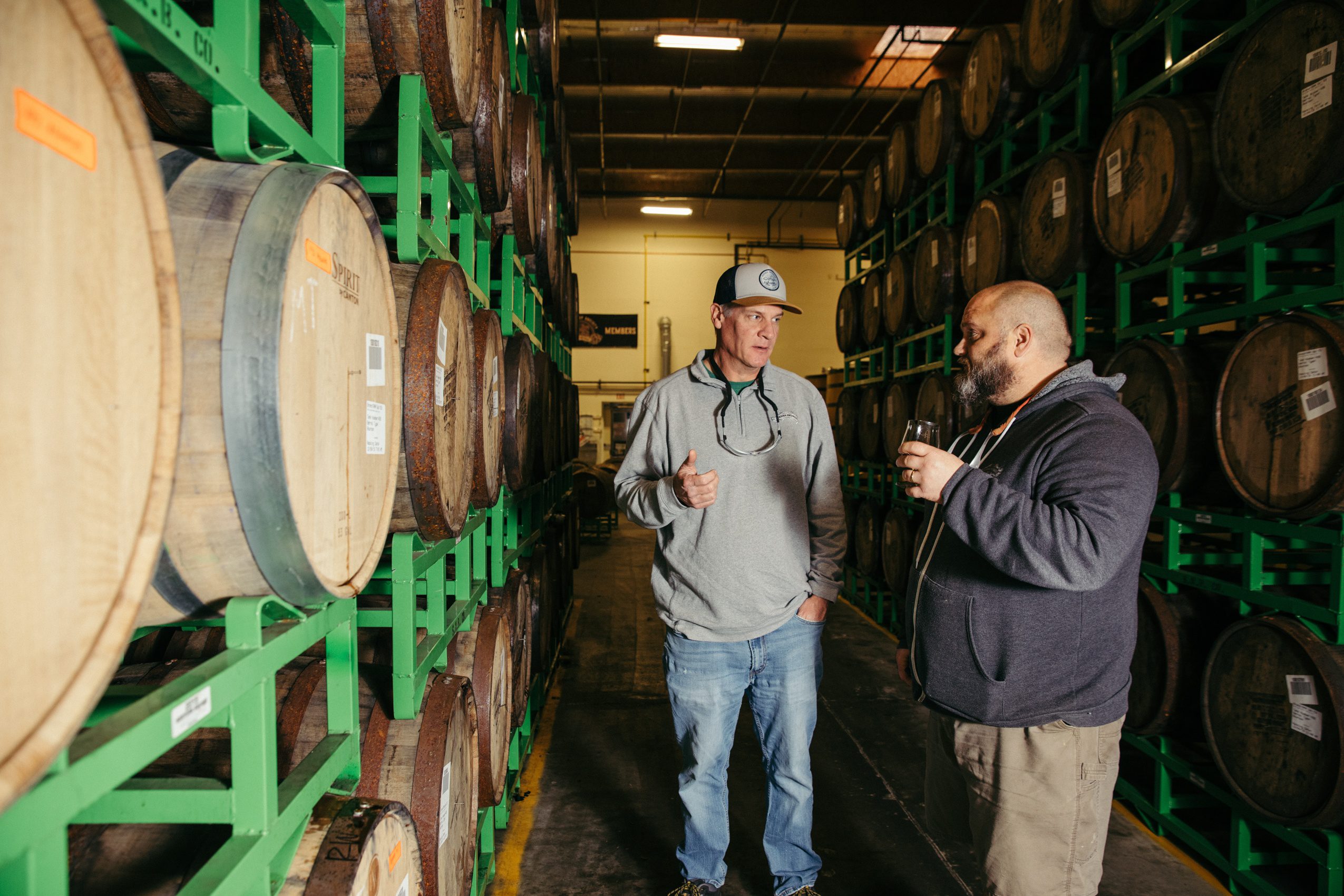
It happened to be Celebration season, so they siphoned off 120 gallons to fill the barrels. It aged for a brief 2-3 months, staying in-house as a treat for the employee Christmas party.
“The first couple barrels went over really well,” Jeff recalls. “People were very impressed with it.”
The wheels began turning. What’s next?
“We started playing a little bit with Porter and Stout and some darker beers,” says Terence Sullivan, a 25-year Sierra Nevada veteran whose past roles include brewer and cellarman. “We weren’t specifically making beers to feature in barrels. It was more of what we had [on hand].”
It was new territory. Perhaps uncomfortable territory.
“Those very first barrels,” Nick says, “I think were done semi-without permission.”
Terence sheds light on that early uncertainty.
“Inherently everything about barrel-aged beer does not fit into our philosophy and our quality standards,” he says. “You’re taking a beer that’s flat and you’re putting it in a barrel that is gonna inherently absorb some oxygen. It’s going to oxidize the beer.”
Beers like Pale Ale are revered for consistency; we hyper-control its brewing and packaging.
Barrel-aging, on the other hand, is variable by nature.
How Do Barrels Transform Beer?
Historically, brewers used barrels as a practical tool.
“Wood was just one of the materials of choice for constructing vats and barrels before we knew how to work with stainless steel,” explains our founder Ken Grossman.
In his early brewing years, Ken visited breweries that still maintained wooden cellars.
“The wood would be coated with something to act as the lining,” he says, such as tar, pitch, glass or epoxy. “So you weren’t really fermenting in wood, per se, to absorb the characteristics of the wood.”
Modern craft brewers, however, have looked to barrels as another way to discover and develop compelling flavors.
“It blends the alchemy side with the artistic side,” Ken says.
Beer’s direct contact with wood invites transformation.
“Our current barrel-aging program is really focused around trying to look at what happens during that long maturation period in the wood,” says Ken. “A combination of oxidation through the wood, absorption of what was previously in the barrel — if it’s a bourbon, or a Scotch, or sake or wine, whatever used it as a home ahead of us — as well as the extractives from the wood [itself].”
All of these factors — and there are even more to consider — are intriguing and exciting, but there’s an element of chance involved. Flavors we imagined might not emerge, some barrels might have hidden defects, and there are always unseen bugs that can turn things sour (when sour’s not our goal).
But when everything goes to plan, when the variables unite in mouthwatering harmony, barrel-aged beer is enchanting. And as our program evolved, we scored more and more tastes of magic.
Finding A New Home For Barrels
“The first really big run we did was Ovila Dubbel in wine barrels and part of it in brandy barrels,” Jeff says. “It was completely unheard of [for us] and we were just jumping in with both feet.”
The Ovila series was a partnership with the Abbey of New Clairvaux, a monastery 20 miles north of our Chico brewery. The barrel-aged Dubbel featured rich malt flavors of toffee, raisin, and burnt sugar, while the red-wine barrels imparted bright fruit notes and the brandy oak added a mellow hint of vanilla.
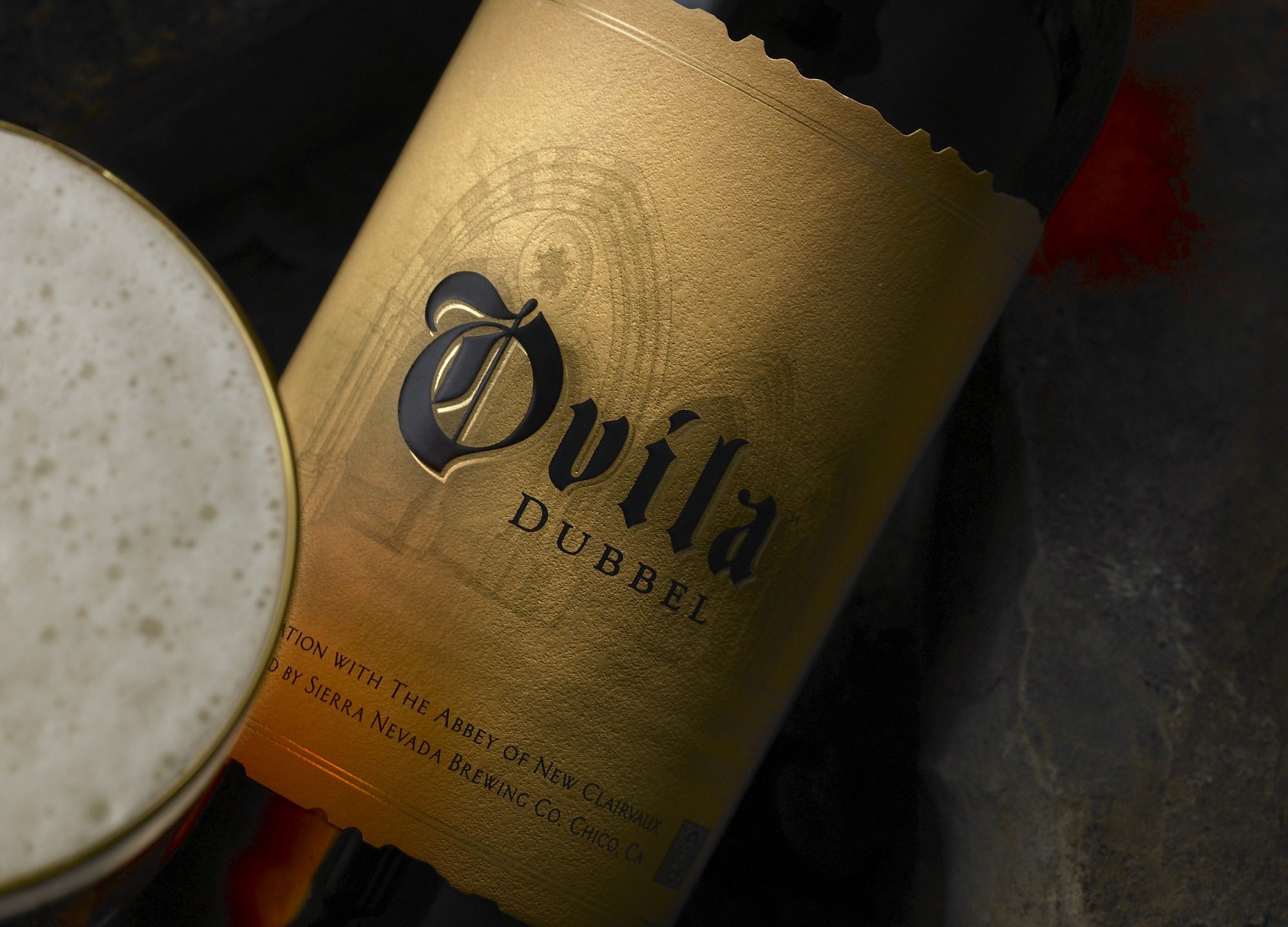
It was delicious, but its creation came with a particular headache: we had no proper home for 230 wooden barrels. They lived in our finished-beer warehouse during maturation, where our forklift drivers were already cramped amid stacks of bottle-conditioning beers like Pale Ale and Celebration IPA. Not to mention, Jeff remembers pesky Scotch barrels with shoddy construction (read: leaky).
“We were making a complete mess in that room,” he says, “and realized that is not a very good place to be, barrel-aging beer with finished goods.”
Where to move, though? There wasn’t space elsewhere on the brewery property. Then Ken tapped Terence on the shoulder.
“Ken, I remember, he said, ‘Hey, what are you doing later this week?’” Terence recounts. “‘Let’s pick a time and I’ll take you out. I’ll show you the warehouse.’”
The warehouse. Soaring bays, several miles away, tucked into a nondescript business park. And they were Ken’s. Up to that point, we had used the warehouse to store dry goods, beer-festival equipment, and other odds and ends.
“It was just the perfect spot,” Terence says. “It had a dock so we could back a truck up to it. We can offload barrels right there.”
There it was: our new barrel room.
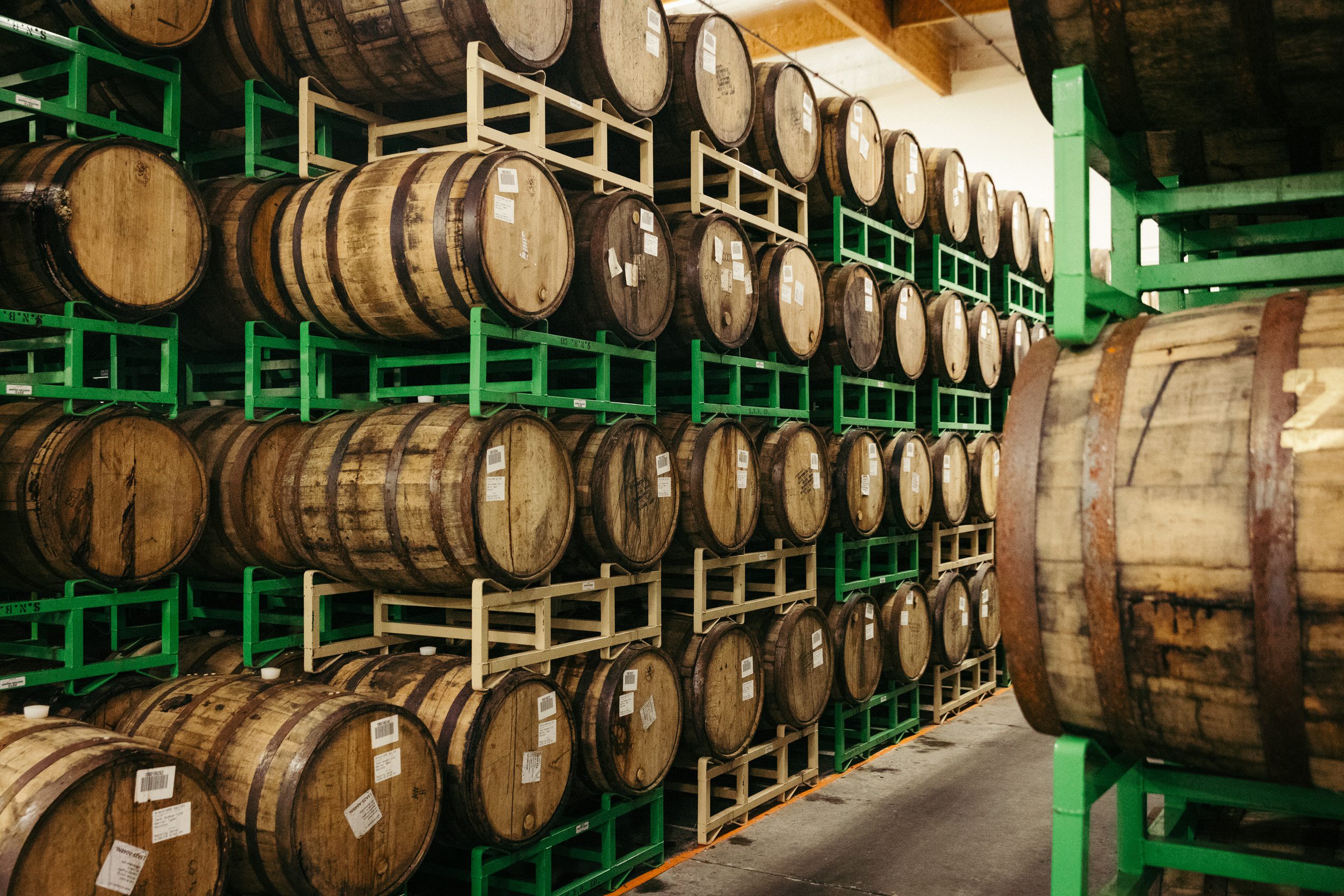
We installed drains, insulation, air conditioning and other essentials, then we let our brewers loose.
“I remember walking in for the very first time,” Jeff says, “seeing this huge warehouse going like, ‘Oh my God, that’s so much room. That’s going to be awesome — we’ll never fill this place up.’”
Looking at the towering barrel aisles today, it seems Jeff and Nick surprised themselves.
The Brewers & Their Favorite Beers
Jeff and Nick have a combined 40 years at Sierra Nevada. Life before the brewery looked quite different.
Nick was a biologist in Idaho, doing snorkel surveys of Chinook salmon. Then at graduate school, he joined a homebrewing community, which fueled a new career path.
Jeff’s origin story is perhaps more relatable.
“My original intent of getting my job at the brewery is I heard they got free beer every paycheck,” he says with a smirk. “I was 21 at the time. … Now 21 years later, I love what I do.”
Working as a restaurant cook in town, Jeff bugged the Sierra Nevada delivery guy every visit about how to get a job. Through a temp agency, Jeff eventually got a short-term role that turned full-time.
After stints on the bottling line and keg filler, he moved to the cellar with Terence who “taught [me] a ton about beer at that point, and I realized that this is actually something I would like to do.”
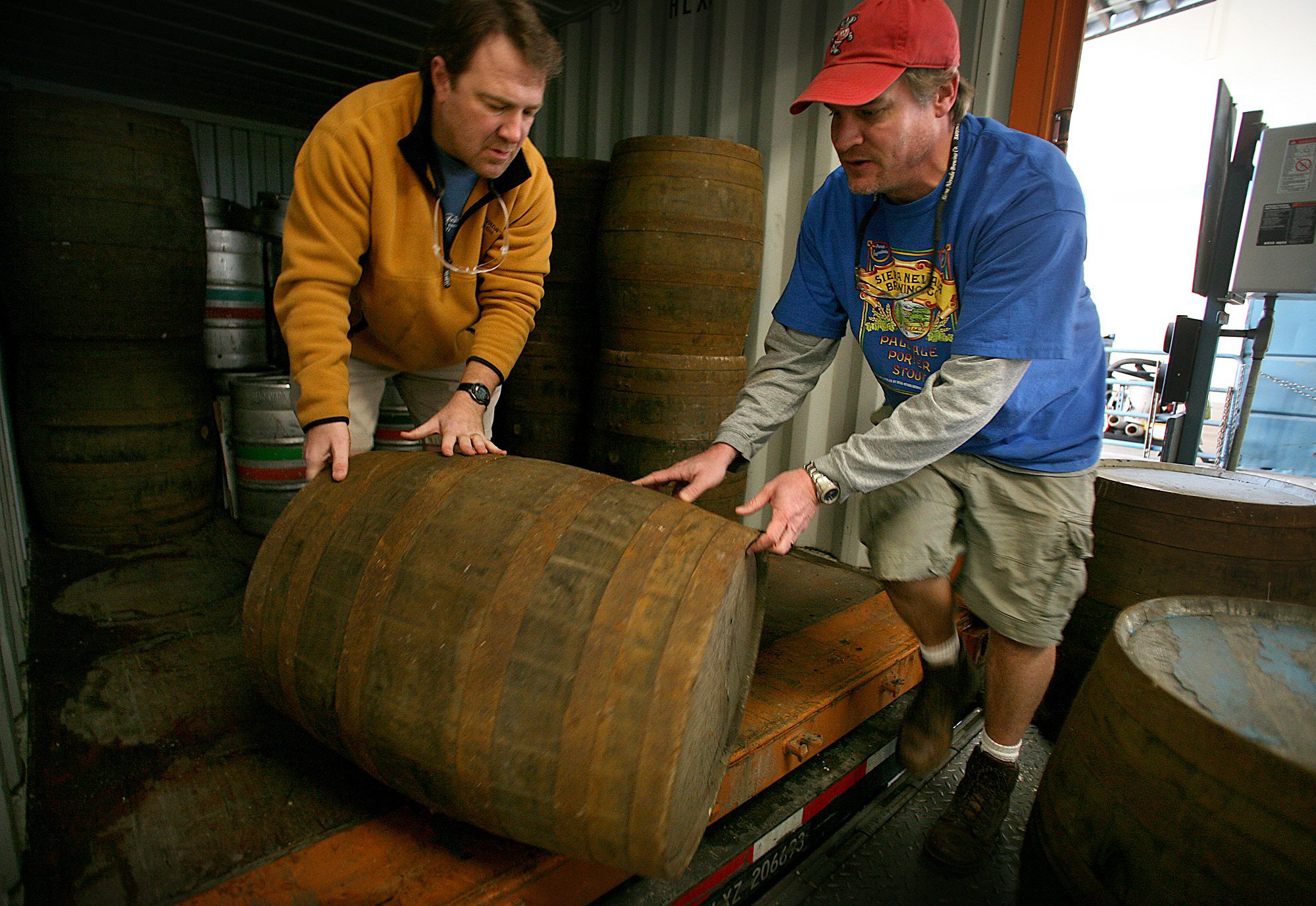
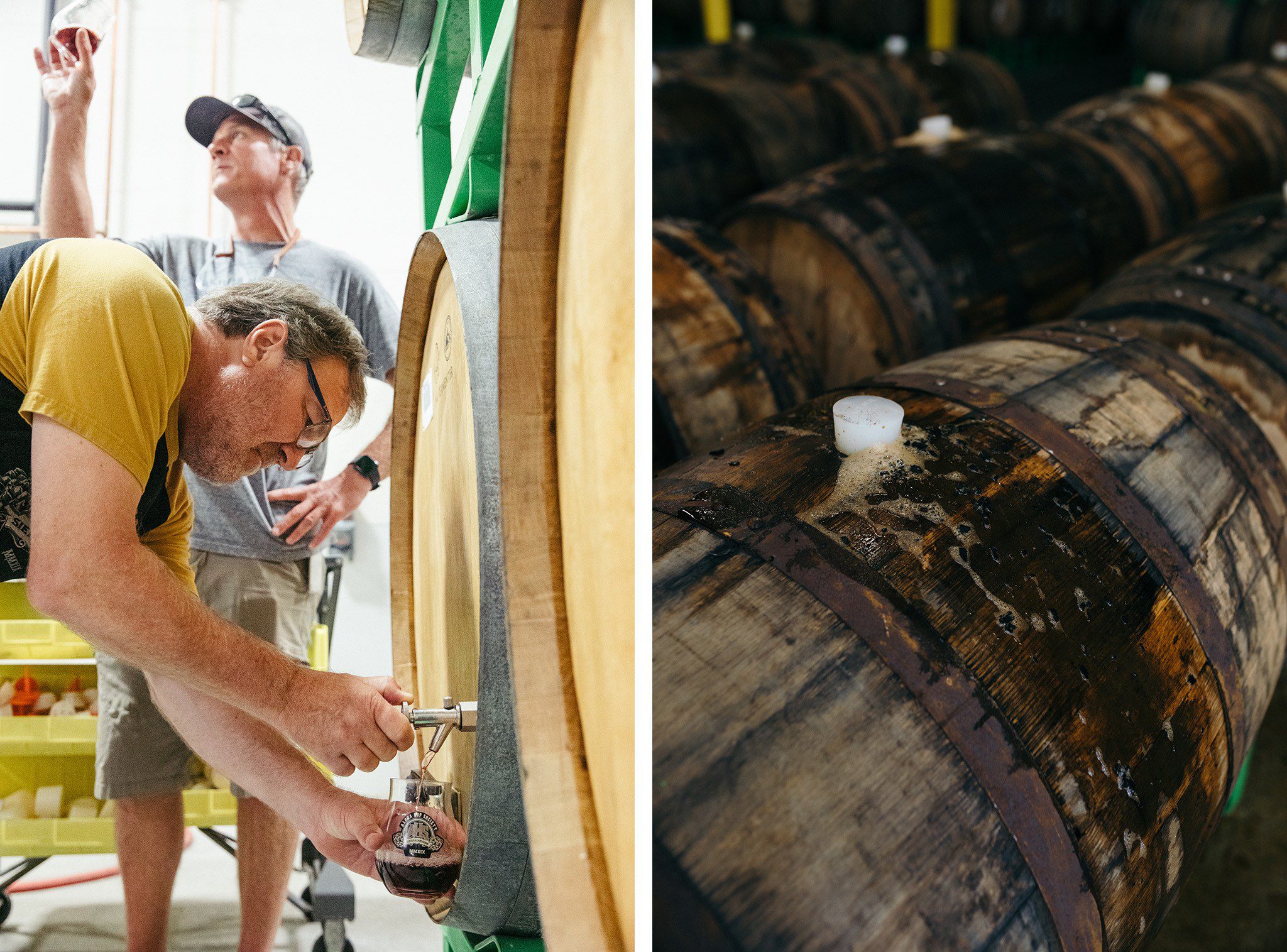
Teamed up in the barrel room, Jeff and Nick boast an ever-growing portfolio of eclectic, outstanding beers.
“Inversely proportional with the size of the project is our creative control,” says Nick.
And since a bigger release like Barrel-Aged Narwhal is rare, they frequently explore on a small scale—everything from Tequila Barrel-Aged Otra Vez to a Maple Scotch Ale in bourbon or the pucker-heavy Big Chico Kriek.
Often they’re brewing from scratch: custom beers designed with specific barrels in mind.
“And sometimes it’s a desperation,” Nick says. “We’re inspired by just circumstances.”
When a bunch of leftover raspberry puree stared them in the face (“It was expensive.”) they threw a Hail Mary.
“We had a tankload of Bigfoot coming our way,” Nick says, “and we’re like, ‘Oh, this might be good.’”
They wondered: bourbon barrels or wine barrels? Wine won out.
“If we weren’t in that situation, we wouldn’t have come up with it,” Nick says, “and it was a delicious beer. It was great.”
Collaborations and partnerships, too, have yielded favorites.
Jeff highlights our retired Terra Incognita project with Boulevard Brewing Company, which saw three different releases over three years. The final Terra Incognita in 2014 was a precise blend of fresh and aged ale: 55% wine barrel-aged ale, 32% bourbon barrel-aged ale, and 13% fresh ale.
“I remember having a whole group of [Boulevard] people out here working on the blend,” he says. “[Brewmaster] Steven Pauwels, he was one of the nicest, greatest guys I’ve ever met. At that time, he was kind of a rock star for me. He had all this brewing experience and barrel experience.”
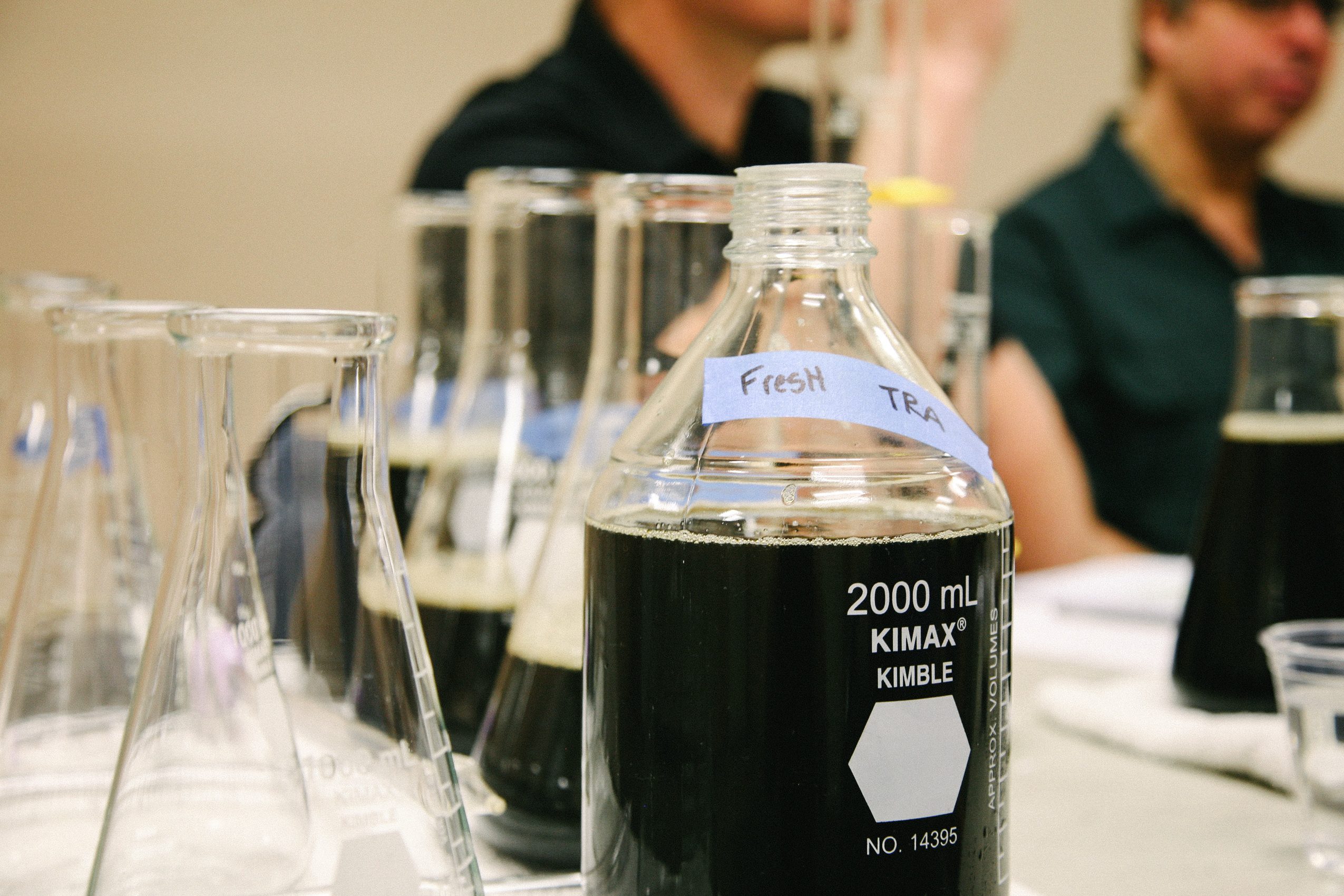
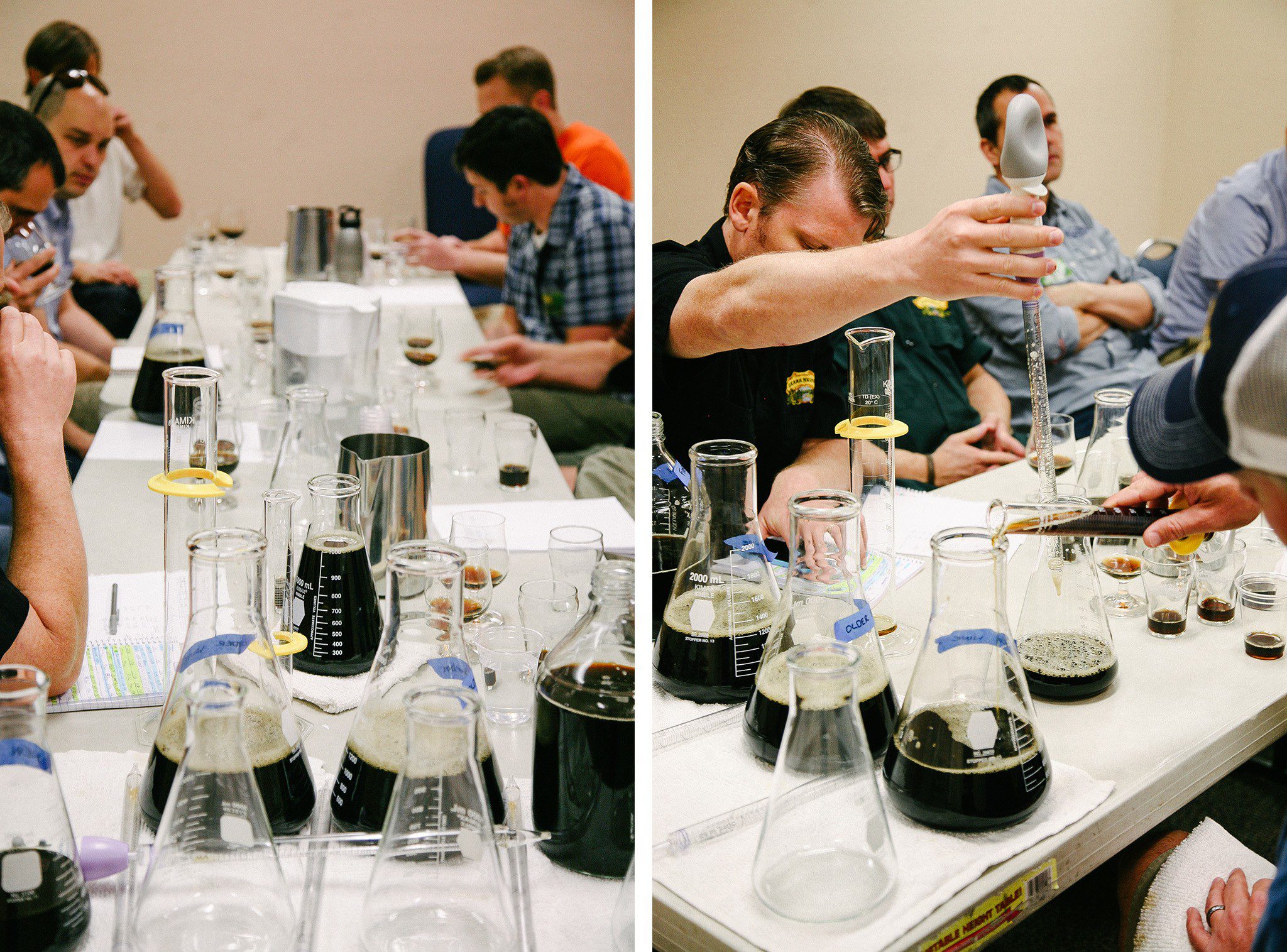
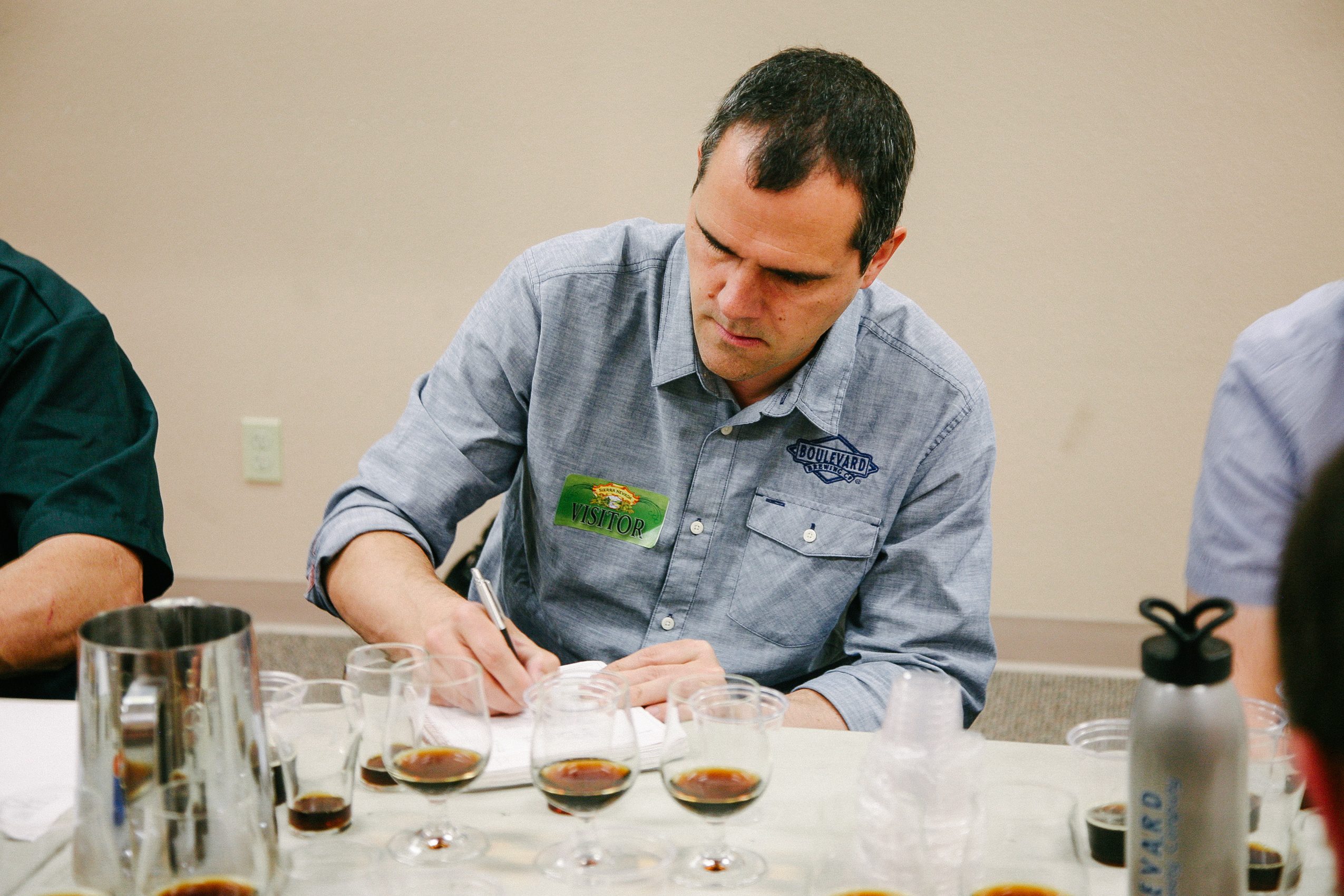
Peaches popped into Nick’s head. He struck up a friendship with the Chico State University Farm, whose peach orchard is a stone’s throw from the barrel room.
“What if we just brewed wort in the pilot [brewery], put it in the tote [container], and drove the wort out to their field,” Nick says, “and pulled the lids off and called it a coolship?”
And so they did. It was early March, the peach blossoms were in super bloom, and the weather was perfect. They parked the truck overnight, drove it back in the morning, put the wort in a small tank, and crossed their fingers for spontaneous fermentation.
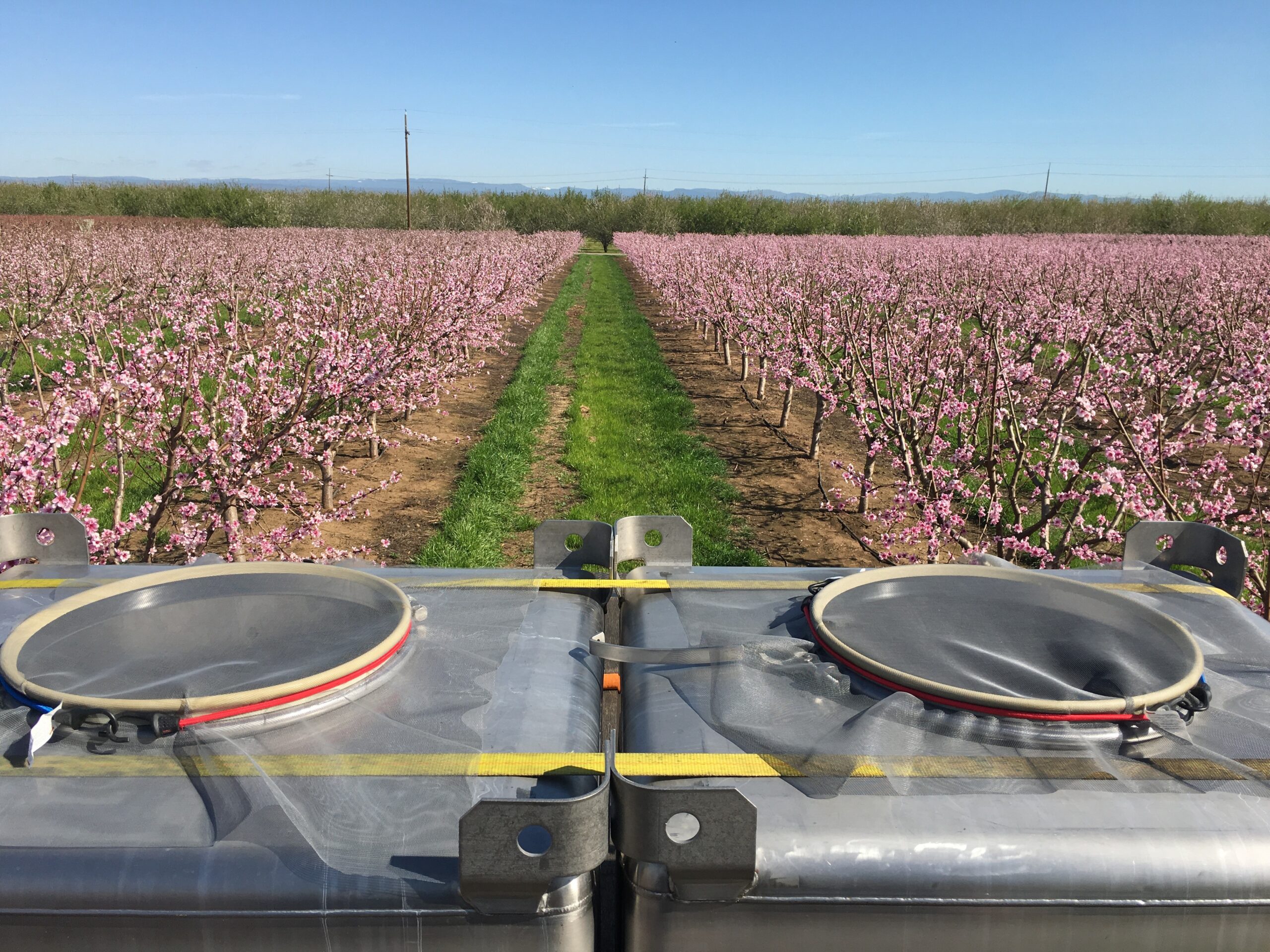
“And about a week later we’d get excited if it bubbled,” Nick says, laughing. “There’d be a bubble that would come out there and we’re like, ‘Ooh, it’s alive!’”
About one year later, finally, it was ready to share and, “everything about it came off really well,” says Nick.
The lucky few who got some bottles? Enter the Alpha Hop Society, our rare-beer club.
Alpha Hop & Future Barrel-Aged Beer
“The idea of having a group of loyalists that are willing to kind of venture in with you on these creations of beer is kind of a no-brainer,” Terence says.
We started the Alpha Hop Society in 2016. Membership is capped at several hundred, and each year they receive an exclusive lineup of barrel-aged and hoppy beers — bottles and cans you won’t find on store shelves anywhere.
Join the Alpha Hop Society Waitlist

Alpha Hop is a boundless playground for Jeff and Nick, one that helps them ever-improve their barrel-aging chops. It’s imagination and expertise they can scale up, making Barrel-Aged Narwhal an eager litmus test.
What’s next?
The question’s quite different now. Two barrels has turned into more than 2,000.
Jeff’s certainly baffled by it.
“I just sort of keep my head low and keep working,” he says, “‘Cause if somebody figures out who I am or what I get to do, they’re going to be like, ‘How the hell did that happen?’”
But these guys seem destined for a life among barrels. In fact, what barrel-aged beer would you be?
“I’m gonna go Bigfoot,” Nick says.
Can you explain why?
“I can’t. It seems right,” he ponders. “Big and scary on the outside, but just a sweet beer on the inside.”
Layered, like barrel-aged beer ought to be.
*We can ship Barrel-Aged Narwhal to CA, DC, KY, NC, ND, NE, NH, OH, PA, VA, and VT.




